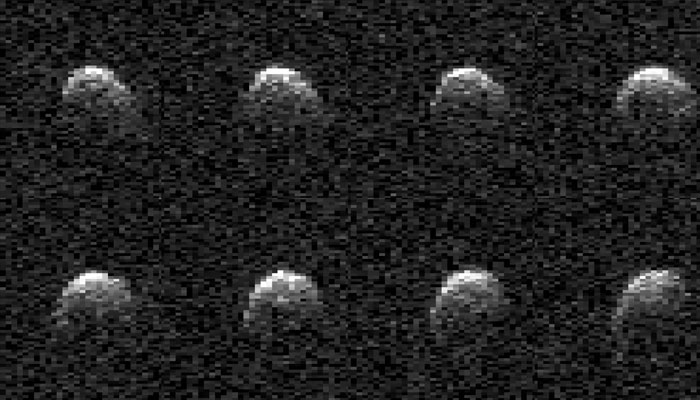Nasa spots stadium-sized asteroid passing by earth — Are we doomed?
Marked the first time scientists could gather intricate data about the stadium-sized asteroid known as 2008 OS7 due to its proximity
February 27, 2024

Nasa's Deep Space Network planetary radar has provided the first comprehensive images of the "stadium-sized" asteroid known as 2008 OS7, Interesting Engineering reported.
This space rock, passing close to Earth on February 2, posed no risk of impact, orbiting at a safe distance of 1.8 million miles (2.9 million km), approximately 7 ½ times the Earth-Moon distance.
Seizing the rare opportunity, Nasa's Jet Propulsion Laboratory (JPL) in Southern California utilised the 230-foot (70-meter) Goldstone Solar System Radar antenna dish at the Deep Space Network's Barstow facility to capture detailed images during the asteroid's close approach.
Discovered by the Nasa-funded Catalina Sky Survey in 2008, this marked the first time scientists could gather intricate data about the asteroid due to its proximity.
The collected data allowed JPL scientists to assess the asteroid's size, spin, shape, and surface features. Reflecting light measurements revealed a width ranging from 500 to 650 feet (150 to 200 meters), and the asteroid exhibited a relatively leisurely rotation, completing one full turn in approximately 29 ½ hours.
Nasa's Center for Near Earth Object Studies (CNEOS) leveraged new distance measurements to enhance calculations related to the asteroid's orbital path around the Sun.
Classified as a potentially hazardous asteroid due to its proximity and size, 2008 OS7, despite its classification, posed minimal risk during its closest approach on February 2, the closest it would come to Earth in at least two centuries.
CNEOS, managed by JPL, maintains a focus on identifying and tracking objects larger than 460 feet (140 meters) that could potentially cause severe damage in the event of an impact on Earth.











